5 Common Overused Sci-fi Tropes
A.P. Zappkinson and Seth Hyperwynn
Science fiction is obviously the best genre in the known universe, but for every Isaac Asimov and Douglas Adams there is creating it, there’s a J.J. Abrams and Veronica Roth ripping it apart. These dreadful hacks throw in any old nonsense they think will work, just because they’ve seen someone else do it. This can give way to cliches and overused tropes such as clickbait articles from indie-authors who have nothing better to do.
Here are our top favourite things to point and laugh at in science fiction!
The countdown
We all love drama, otherwise we’d be sitting watching two hours of our favourite characters scratching their arses and playing cards. Drama helps us to invest in the actions of our characters and root for them as they go on their journey, overcoming obstacles and learning to be better—assuming they’re not already a perfect 5 foot martial arts master and genius…
But drama comes from tension, and when they run out of ways to build tension with stakes that our characters care about, there’s always a really big clock that is counting down to an event so terrible that it must be the end of the movie.
No franchise is safe from this cliché.
In Star Wars, the ending comes down to the giant space station the size of a moon that can travel through space fast enough to cross the galaxy in a matter of minutes. It lies ready to blow up our plucky heroes, but has to do some inexplicable stuff first. Just wait—it’s more fun that way.
In Alien, Ripley set the self-destruct and then had to run around debugging the system before the time ran out. They even pulled the same stunt again in the sequel. Twice.
Star Trek the Motionless Picture tried to be a little more original by making the entire movie one long countdown, with an alien object coming to Earth to do terrible things, but they weren’t above using the same trick again whenever the writers ran out of cocaine.
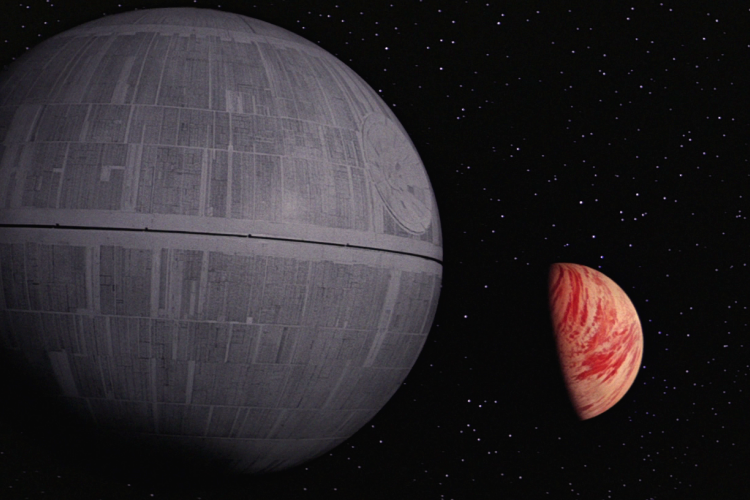
The flawless character
These days, no Disney movie would be complete without a female character dragging everyone around by the nose, being the best ever at everything, and annoying us with dreadfully shallow franchise-destroying arrogance. Some call it the ‘Mary Sue’ phenomena, but someone will always then jump in and say, ‘Well technically it’s not a Mary Sue because of some arbitrary reason I just made up.” So we’re not going to call it that so we can get back to the good stuff – that isn’t really all that good.
It all started with the likes of Ellen Ripley and Sarah Connor, strong female characters who earned every step they took with well-plotted character development and personal growth. Then, along came corporate writing staff who were so out of step with reality that they thought Batwoman was a documentary. The rest is, as they say, hystery.
Well written characters need flaws, personal shortcomings and obstacles. Without them, there is no character development or story arc. Disney writers were obviously taking a hangover sickie the day this was covered at writing school, because they just throw in poorly conceived characters they identify with—perfect, flawless, capable individuals that just want everyone to love them, and to dictate the terms by which they’re loved. Because they were generally employed because of their politics instead of their accomplishments, they never realised that real people, like Ellen Ripley, have to work for the things they want—like not being eaten by the giant biomechanical murder-morph.
We got an influx of characters who were as realistic as a Fox news editorial, characters that never had to earn their status but were somehow the best at everything. This is Rey in Star Wars, Space-Jesus in Star Trek Discovery, Charlie’s Angels (you probably haven’t seen that because nobody saw that), Batwoman, Captain Marvel, the chick from Men in Black International… the list goes on.
I’m not even getting into the identity politics behind it. I’ll leave you to make your own mind up, while these idiot writers get on with the business of trying to make your mind up for you.

'I'll save you!'
Just in case you weren’t sure who you’re meant to give a crap about, there’s often a ‘save the cat’ moment that really nails the message home. In sloppy writing, the cliché is that if you want the audience to like someone, you have them do something nice, such as save a cat. You get them to ‘kick a dog’ if you need to send a message that their Daddy didn’t love them enough.
When we first meet Darth Vader, he was pacing through the aftermath of a slaughter and then he starts strangling people and throwing them around. This sends a powerful message that you don’t want to borrow money from this person, and if he wants to borrow money from you, you’re probably going to have to remind him to return it so many times you eventually give up. Darth Vader doesn’t give a shit!
All this has become so common that the film series John Wick was based entirely on the premise of a bad guy hurting a dog, and that was sufficient to carry a three-movie arc.
But just as often as we see this well-used trick, we almost just as often see a last minute version, shoehorned in simply to nail the message home that this person is the one we’re meant to like.
In Alien, Ripley was just another one of the crew, and at the end the film needed to just give us a little poke to remind us that we’re meant to like her and that she was really the main character all along. Her saving the cat meant nothing in terms of plot or character progression, but it sent a strong message that she’s a nice person, and we’re now meant to hope she doesn’t die.
In the sequel she does it again, but it’s a sequel and the odds have to be higher, so the writers decided to replace the cat with a child. Subsequent writers thought it would be funny to undo all that. Writers are terrible people.
During Star Wars, Han Solo became a bit of a centrist character. He’s taken the far more intelligent position of not fighting in a brutal war that’s getting everyone killed on both sides. But, we just needed to know where the writers stood on all this, so he turns up at the end and saves Luke, just so we know we should be rooting for him.
We’re not saying Luke is a cat—just that he’s a lot like a cat.

You were right all along!
At the end of Terminator, Sarah Connor sits in her Jeep, rubbing her belly, and talking sadly to herself into a tape-recorder now that her mind has fully snapped. It’s a touching scene where she looks back over the dreadful events of the last few months. A murder-bot from the future had come back to slaughter her. This cost her her mother’s life, her boyfriend got punched to death, carnage was wrought on the local police, and her friends were brutally killed. If she had a cat, she probably would have saved that, of course.
If only she’d just listened to Kyle, who was trying to tell her this all along—most of this could have all been avoided.
But she didn’t.
This is a pretty common way to end a story, and nails home the message that the writers started with an ending and worked backwards, a professional thing to do, and now they want to let you know it. You never see this in a J.J. Abrams movie because his writing process never involves professionalism.
We see this in Aliens where the Marines are mercilessly slaughtered with startled looks on their ripped-off faces while Ripley can only look on and sigh. Yoda rolls his eyes at Luke for the same reason.
Don’t even get me started on the use of this cliché in horrors.
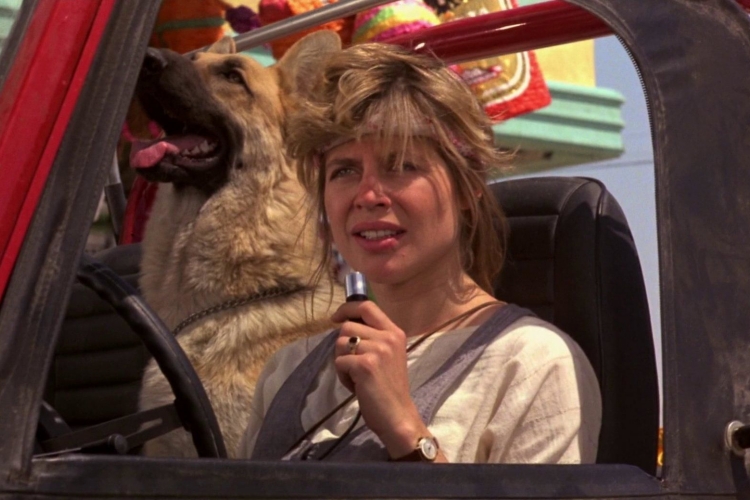
We just didn't get you...
Frankenstein is a poorly-written pile of crap by Mary Shelley—allegedly. It weakly tells the tale of a man making a terrible creature that goes out into the world and murders people because ‘Daddy didn’t love me,’ even snapping the necks of the odd child without the benefit of due process when the fancy takes him. He couldn’t just go out and become a stripper like a normal person, he had to resort to slaughtering everyone his maker ever cared about.
At the time, everyone recognised that this made him a bit of a scumbag, but in the era of Disney making heroes out of villains and writers out of idiots, the whole thing is a bit cloudier. Now people think that the monster was just misunderstood.
But this is a commonly used trope we see a lot in science-fiction (and other) stories.
At the end of the first Star Trek film, the crew sit back with beaming smiles after the monstrous alien cloud of carnage turned out to just be a lost child. Everyone forgets it wiped out endless planets and just wishes it well as it goes off to do its filthy business.
Star Trek pulls out this ‘Joker’ card fairly often, and we see it rear its head in ‘Generations’ when the Nexus turns out to be a retirement home instead of a space-dwelling Bermuda-Triangle with pink lights. Likewise the cylindrical planet-shattering rock thing in ‘The Voyage Home’ turning out to be a really crude telephone for talking to fish—or something.
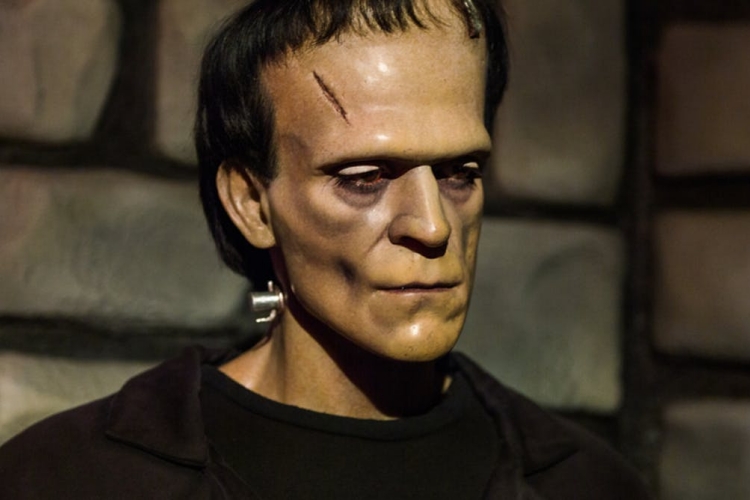
Secret bullshit saves the day
An annoying and overused piece of nonsense is the ‘big red button’ cliché where the way out of a bind is to use a super-secret weapon that just happens to fix whatever plot-hole your ship is being sucked into.
This is used in the worst possible way in every single James Bond film ever where they make a special point of giving him very odd and pointless gadgets that turn out to be exactly what he needs later on. Are you going to be attacked by a huge monster made of kettles? Don’t worry, we thought of this and designed you a special oven-glove with a built-in tin-opener.
But this is used frequently in science-fiction when the writers can’t think of a proper way to resolve a problem. This trope was used to good effect in Galaxy Quest where they actually mocked it by relying on an unknown piece of technology to save the day.
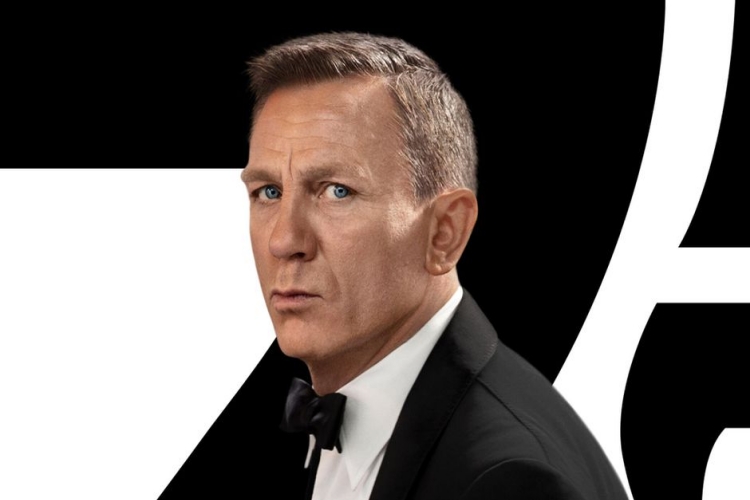
Gibber, ramble, nonsense, nonsense
When a writer has run out of ideas before the story has run out of story, it might be time to resort to using every long word they know while their characters describe how they’re going to save the day.
This is used way too often. In Doctor Who, we often see the titular character cobbling together a solution from leftover kettle-monsters who have been ripped apart by a special oven-glove while explaining how things work, in ways that couldn’t actually work.
Star Trek the Next Generation mastered the art of this with the only possible solution to every problem being having Geordi roll off a pile of gibberish that sounded vaguely plausible.
It’s not just bad TV and movies that suffer from this cliché. Politicians and liberal arts majors do it too… A lot…
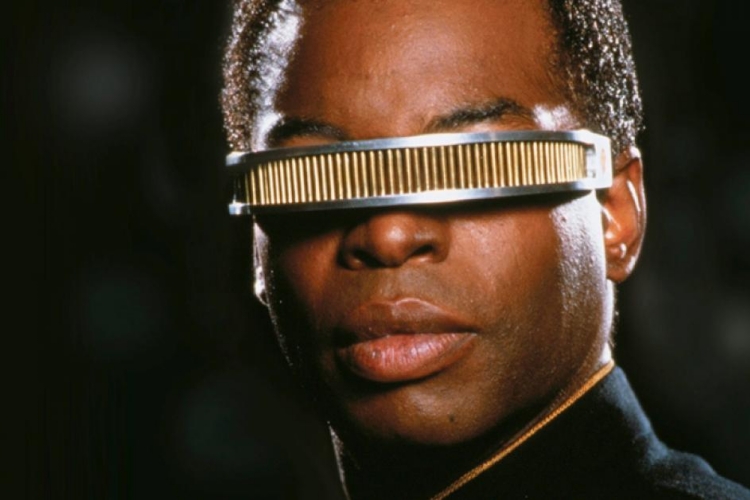
The old switcheroo
Isn’t it great when you’re enjoying your story and something you thought you knew suddenly and inexplicably becomes something completely different in a clumsy and awkward way?
We’re not talking about how Ash in Aliens is revealed to be a robot with a general dislike of humans, or in Empire Strikes Back when Yoda reveals he’s not just a sock puppet. Those have sensible reasons for happening and are carefully plotted. Oh no—we’re talking about things like how in Charlie’s Angels, where Captain Picard reveals he’s a man, and therefore evil.
This is the kind of clumsy writing we see in the last Batman movie of Christopher Nolan’s massively overrated trilogy, where Batman’s girlfriend stabs him and then goes on to explain in boring exposition why the plot of the film made no sense whatsoever.
It’s the same crap we see in Disney’s ‘Frozen’ when Hans, the only likeable character in it, who so far has spent almost the entire movie taking care of freezing civilians and promoting common sense and good hygiene, while the rightful rulers galavant around the mountains making it snow on everyone while singing about feelings or whatever, suddenly he was the bad guy all along. Ha! Bet you didn’t see that coming!
It’s the same crap we see at the beginning of the second Austin Powers movie when the female co-protagonist of the first movie (and now his wife) suddenly turns out to be a murderous Fembot that tries to kill him. Exposition puts the record straight by explaining that they actually knew about this all along, which Powers seems perfectly happy with. We’ll give them a free pass on this one because it happened at the start of the story, and it was intentionally played for laughs.
It’s the same crap we see in Captain Marvel—which was mostly made of actual crap—where her mentor reveals he was the villain all along or something.
Even this is too hard for some people, as in when Rian Johnson ‘snubvertled your exploitation’ by having the big reveal of his lead villain being that he had forgotten to write anything for him.

Sadly there are plenty more, and most people never notice them, but as a writer you can’t help but roll your eyes every time a story runs out of fresh ideas and just throws out whatever nonsense it had at the bottom of the barrel. We hope we’ve ruined your favourite movie for you.
Many thanks for reading this article. We hope it was interesting, informative and entertaining. Follow us on social media or share our content on your own pages. It helps us grow so we can create more free content to help you.
Want a completely free sci-fi comedy?
Rob is a ginger waiter who successfully fails at dating. Dave delivers towels. Join them on an adventure that might change the entire galaxy – but won’t – as they drink free beer and travel out to the edge of the known galaxy for reasons that barely seem worth mentioning.
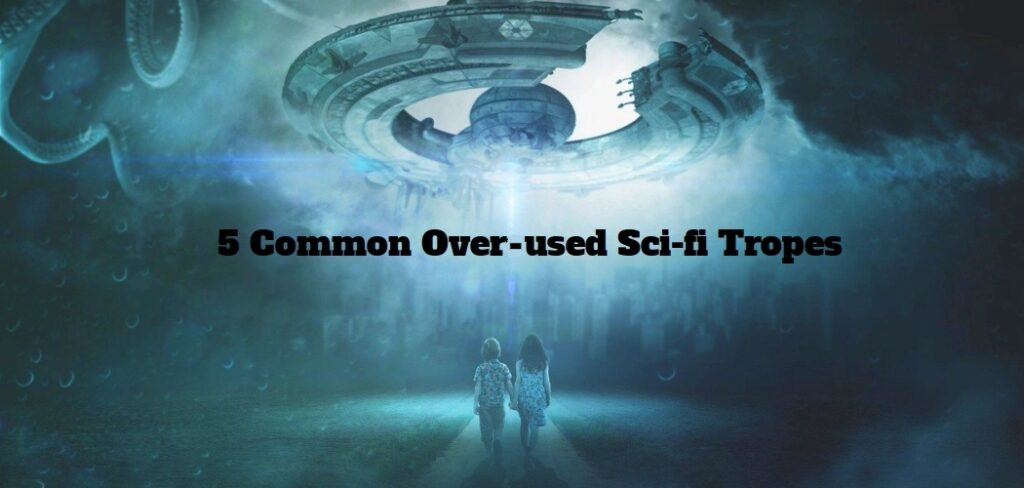
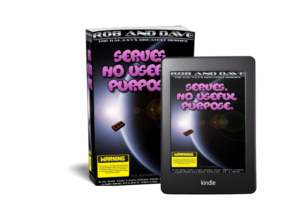

This was the best article I’ve read since I don’t know when.
That’s fantastic to hear that you’re enjoy our nonsense. We write to have fun, we’re stoked to have people having fun with us.
Yep, spot on correct and funny in all the right ways.
And to add, I particularly love that the list of 5 tropes actually had 8 of them.
We’re writers – we’re not meant to be able to count to 4. I mean 6. I mean…
Frankenstein a “poorly written pile of crap”? I assume you’re being post-modern post-ironic here.
As I recall Sarah Connor didn’t take long to believe she was being hunted by a robot from the future- less time than it would take you in fact.
Some good points but methinks you protest too much.
No, Frankenstein is shit. Read it, it does not stand up today. It’s a constant tirade of ‘feels’ as Victor collapses into emotional disarray after everything that happens. He just flops about like a rag-doll, giving up after every trauma. People simply don’t act like that – except exceptionally spoiled over-privileged idiots who have no idea how reality is… of course, if you like having that kind of person dictate what’s normal to you, be my guest.
As for the rest, I hope you are able to discern that humour is derived from exaggeration. Clearly anyone taking these articles literally is an idiot and I’m sure you’re not.
But, you also make a foolish contradiction of defending Sarah Connor for being a strong woman and also defending Mary Shelley for being an incredibly weak one who projected her feeble emotional state on her characters. Can’t have it both ways…
I never get tired about anything that I liked, like the first SF movie I ever saw, the original The Thing From Another World, back in 1950, which is my most viewed movie of all time…
This is just us having a laugh. We both love all these films. When a grown adult pokes fun, they’re poking fun at themselves. I’ve seen Terminator more times that I would be happy to admit and still think it’s the best action script of all time.
Ah, the cliché of the listicle of clichés, down to putting the wrong number on the title of listed things in the title.
Dudes, Frankenstwin is a masterpiece. “People don’t act like tha” is a peculiar criticism coming from someone who has apparently seen the one movie, Aliens, and other only in passing. None of the films you list feature people acting like sane people would!
I teach novel-analysis and we studied that novel last summer. It’s shit – it’s REALLY shit. We deliberately put the wrong numbers in as a reminder that those articles are not meant to be taken too seriously. Some people don’t get that memo…
Point is, wrong numbers are an overused trope.